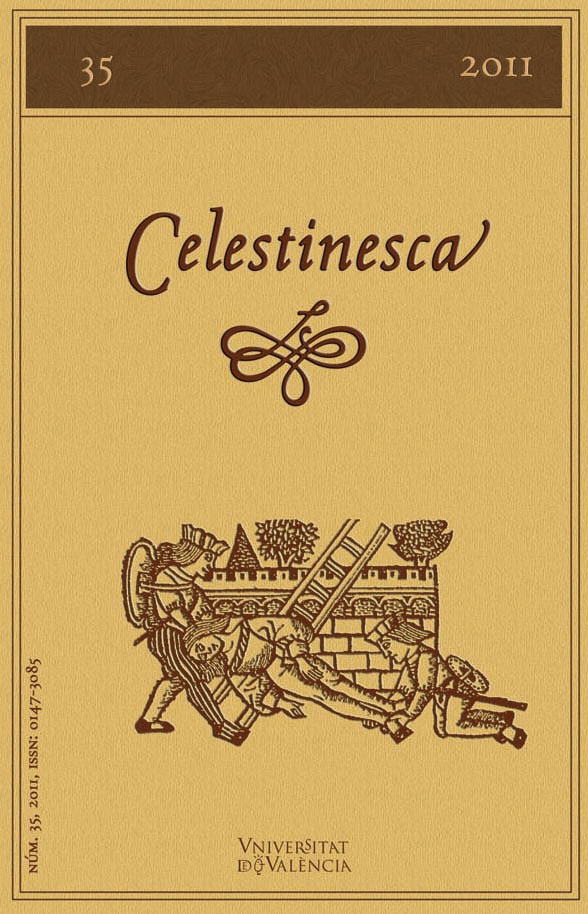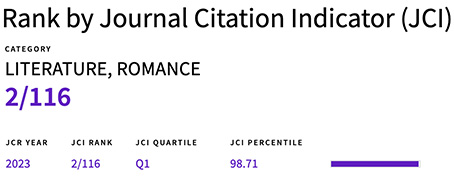Propiedad y dominium en Castilla a finales del siglo XV: Celestina como civitas non recte instituta
DOI:
https://doi.org/10.7203/Celestinesca.35.20131Keywords:
Celestina, property, conflict, political power, external goods, dominium, Catholic Monarchs, city Abstract
Abstract
This article studies the principle of property as a crucial friction point for understanding some of the fundamental conflicts in Celestina, in relation to society and political power at the time. After pinning down the relevance of this subject in the play, I evaluate the religious, moral and legal mechanisms that power uses to control and legitimate possession at the end of the 15th century. The transgression of these mechanisms by the characters in the dialogue undergoes an in depth analysis which shows a dysfunction or failure in both the controlling principles for obtaining goods and the social obligations regarding their disposition. The study of external goods in Celestina confirms the characters' preference for the sign value of property, which is maximized in the privative, exclusive, public and consumption-oriented component embedded in the concept of dominium. The study concludes by assessing the consequences of the mentioned dysfunction or failure in relation to the Catholic Monarchs' socio-political restorative project, before whose idealized models of the city Celestina stands as a civitas non recte instituta.
 Downloads
Downloads
Downloads
Published
How to Cite
-
Abstract518
-
PDF (Español)180
Issue
Section
License
![]() Celestinesca is committed to the dissemination of knowledge, that is why access to its contents is free and is ruled by a Creative Commons Attribution-NonCommercial-NoDerivatives 4.0 license.
Celestinesca is committed to the dissemination of knowledge, that is why access to its contents is free and is ruled by a Creative Commons Attribution-NonCommercial-NoDerivatives 4.0 license.
Authors retain the rights to their works. Therefore, they can disseminate them and deposit them in the repository, institutional or not, that they wish. However, they are kindly requested to do so by providing the full bibliographic reference and the corresponding DOI.
Celestinesca does not charge authors for submitting, processing, reviewing or publishing their articles.





